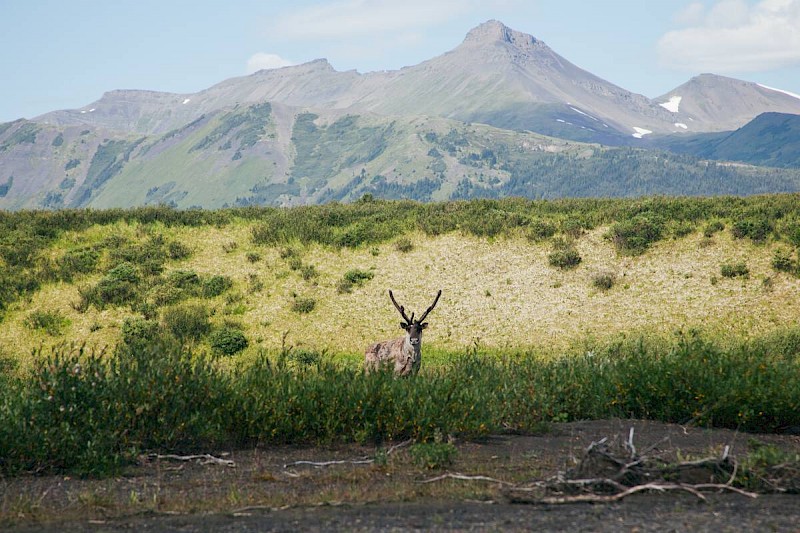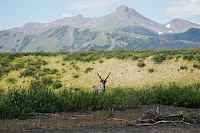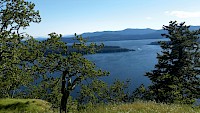BC Parks Foundation
Researchers Make One of World’s Larger Dinosaur Fossil Discoveries in Spatsizi Park
September 25, 2024
A caribou in front of the Skeena Mountains in Spatsizi Plateau Wilderness Park
Researchers Make One of World’s Larger Dinosaur Fossil Discoveries in Spatsizi Park
At nearly 700,000 hectares (2,697.54 sq mi), Spatsizi Plateau Wilderness Park in northern British Columbia is one of Canada’s largest parks. It’s also one of its wildest. Known as the Serengeti of the North for its incredible wildlife, it is one of the most remote and undeveloped regions of BC. That makes it a sanctuary for biodiversity. Mountain goats, grizzly bears, caribou, moose, wolves, and many other animals roam free. Over 140 species of bird make their home here, and the lakes and rivers are teeming with fish.
Today, its natural abundance has revealed another extraordinary treasure—one of the world’s larger discoveries of dinosaur fossils.

During a recent ten-day expedition on a remote mountaintop within the park, paleontologists uncovered over 90 dinosaur fossils. Among the finds were teeth from relatives of the Tyrannosaurus rex and Triceratops, as well as bones from a duck-billed herbivore and a small meat-eating dinosaur related to the velociraptor.
“We’re excited to start figuring out what species we may have found,” says Victoria Arbour, curator of palaeontology at the Royal B.C. Museum and lead researcher on the project. “They could be entirely new species not yet known to science.”
This was the case in the 1970s when a geologist in the same area discovered the remains of a new dinosaur, eventually named Ferrisaurus sustutensis, a relative of the triceratops.
Arbor shared that sixty-eight million years ago, when these dinosaurs lived, the mountains of Spatsizi Plateau Wilderness Park would have been as high as the Himalayas, with lush valleys of redwood cedars and ponds and rivers surrounded by ferns and flowering plants.

The fact that these fossils remain today, despite glacial retreat, changes in climate, and the disappearance of an inland sea, highlights the importance of protecting biodiverse lands. In addition to providing a vast place where life can evolve on its own terms, public access has meant researchers can explore them, leading to these groundbreaking discoveries.
“Parks are places of discovery,” says Andy Day, BC Parks Foundation CEO. “I never cease to amaze at what people find in parks. Whether it’s dinosaur fossils, new species living today, a new activity, or something we learn about ourselves, discovering is one of the most enriching experiences a person can have in life. We are so lucky to live in BC and to have our parks, for everyone to enjoy, forever.”
Did you know: the name, “Spatsizi,” comes from a Tahltan term meaning ‘red goat,’ describing the local mountain goats who roll in the iron-oxide-rich dust and take on its rusty hue.
Parks contain all kinds of hidden treasures. Make a difference by helping protect more areas through our Conservation Fund.
Love this? For more inspiring stories about conservation wins, community efforts, and ways you can help protect nature, subscribe to our newsletter today.
Similar Stories
-
 September 25, 2024
September 25, 2024
Researchers Make One of World’s Larger Dinosaur Fossil Discoveries in Spatsizi Park
-
 March 24, 2020
March 24, 2020
Join B.C.'s Big At Home Picnic!
-
 April 10, 2024
April 10, 2024
Protected: Galiano Island Garry Oak Ecosystem
“BC's parks are places of astounding natural beauty that anchor our hearts and our souls.
”